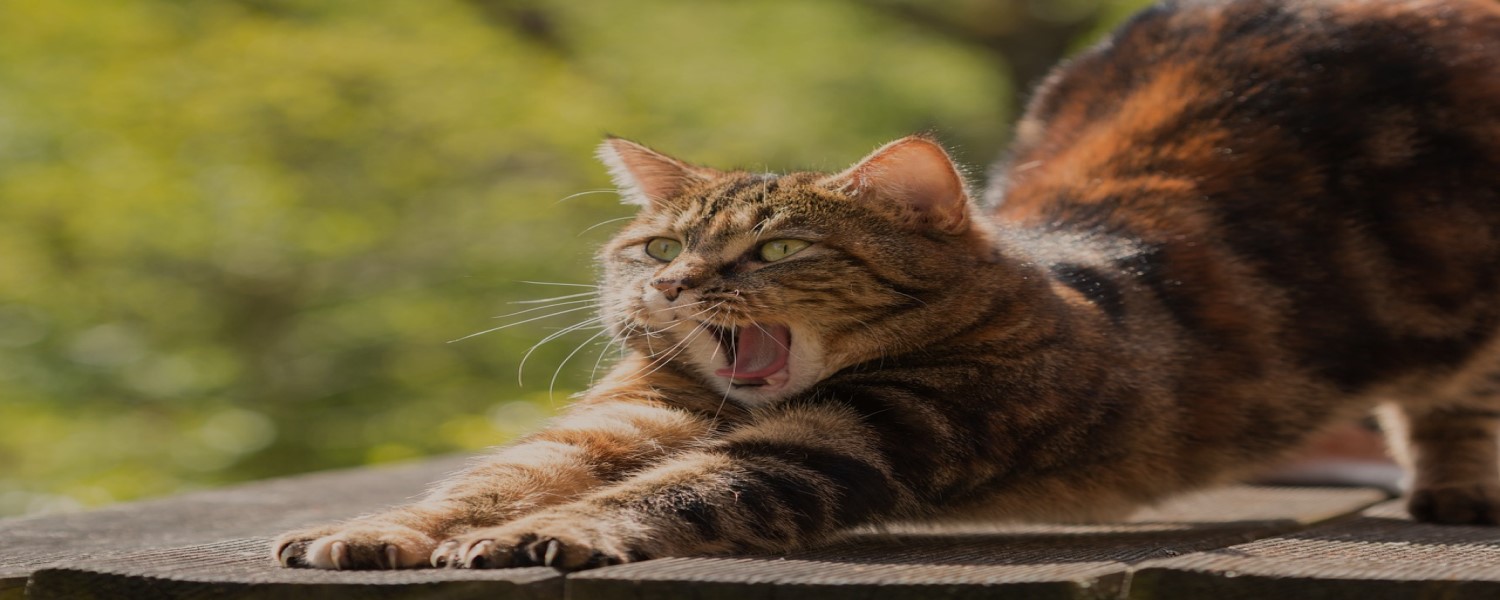Did You Know About All of These Benefits of Naps?
I wasn’t quite late yet, but if it took me much longer to find it, there was a chance it would cause me to be late. I knew my watch was around here somewhere. Then after about 5 minutes of looking for it, I finally found it. Yup, apparently it was still residing in the last place I left it – on my wrist! Sadly, and I am embarrassed to admit, this happened to me last week.
I usually do get enough sleep, but when I don’t I am prone to doing stupid stuff like this. And unfortunately, I am not alone – even though we know we need it and want it – most of us are not getting enough of it. Despite the fact that the National Sleep Foundation recommends 7-9 hours of sleep a night, it turns out a good number of us are getting less than 6. In fact, the average American is sleeping an hour less now than they did back in the 1940s. While nothing can replace a good night’s sleep, there is something we can do to help us out – and that is napping!
Today’s blog post is all about the benefits of naps – we will also discuss when to nap, how long to nap and finally, things you should keep in mind to get the most out of your napping.

Let’s first start with…
Why We Need to Nap
As we just discussed and as my embarrassing search for my watch shows, the number one reason we need to nap is that we don’t get enough sleep during the night. Remember how I said many of us get less than 6 hours a night? The CDC did a study and found that more than 40 million workers are getting less than 6 hours per night!
One of the primary reasons for us needing to nap is that…
We Are Programmed Biologically…
To have two periods of intense sleep – once between 2-4 am and once between 1-3 pm. Interestingly, 85% of mammal species sleep for short cycles during the day. That number, however, excludes humans – as the typical pattern of human sleep consists of 1 long sleep period. So, while the reason you may feel sleepy in the afternoon could be due to your high carb lunch, the more likely reason is simply due to your body clock and the fact that your body is slowing and producing melatonin during that time.
If that isn’t enough reason for you to take a nap, let’s look at some…
Other Benefits of Naps
If you are still skeptical, let’s look at some additional benefits of naps:
Health risks of not sleeping – many studies have shown that chronic sleep deprivation can lead to numerous health issues such as heart disease, hypertension, diabetes, depression, increased mortality, messed up metabolism, etc.
Help you learn/memory – other studies have shown that napping can help increase our capacity to remember things.
Increase alertness – A study done in the 1990s showed that pilots who took naps on flights, (relax they had co-pilots) had a lot fewer errors with faster reaction times afterward. Other studies have been done in areas ranging from driving a car at night to putting IVs in patients in an ER which all showed similarly positive results showing that giving your brain rest increases alertness.
Restores glucose levels – your brain requires a ton of energy meaning it utilizes a lot of glucose. By having a nap, you are usually able to restore those depleted glucose levels.
Ok, now that we know why we need to nap and the benefits of naps, let’s move on to some actionable stuff you can sink your teeth into…starting with…
The Best Time to Take a Nap
As we just learned, we are programmed for 2 sleep periods – between 2-4 am and between 1-3 pm. Seeing as how most of us are asleep already during the 2-4 am period, that leaves the 1-3 pm period as the optimum time to take a nap. Another reason to nap between 1-3 pm is that it won’t disturb your sleep at night, because if you snooze too late in the afternoon it may make it harder to fall asleep at night. For those of you who work shifts, this time period won’t apply – so, a good rule of thumb is to nap 6-8 hours after waking.
Now that we know the best time to take a nap, you are probably wondering how long to nap, and the answer is…
It Depends!
There are a couple of factors at play that will determine how long you are going to nap – which are the amount of time you have, and what you want to accomplish with your nap.
To figure those things out, let’s quickly look at the typical human sleep cycle, which usually lasts between 90-120 minutes, the typical sleep cycle consists of 5 stages:
Stage 1: 5-15 minutes, this is when you are in a very light sleep.
Stage 2: 5-15 minutes, you are in light sleep, your heart rate slows, and body temperature drops.
Stages 3 and 4: 5-15 minutes each, this is when you start getting into a deep sleep and where your body starts repairing itself.
Stage 5: also known as REM sleep, which is a deep sleep that can last up to an hour and where dreaming occurs.
As you will see…
Different length naps have different benefits and drawbacks
So, you will need to choose the length of nap that works for you.
If you sleep for:
10-15 minutes – you won’t enter Stage 2 of the sleep cycle, but you will still experience improved focus and productivity.
20-30 minutes – this is when you will enter a light sleep in Stage 2, which will also help boost your motor function and give you a nice jolt of alertness. The cool thing is that since you are in a light sleep it’s easy to wake up and you won’t be groggy when you wake up!
40-60 minutes – you will enter stages 3 and 4 which will help boost your brainpower, learning ability and memory. The only downside with napping this long is that something called sleep inertia will kick in. This means you will probably wake up feeling groggy, and it may take you a while to wake up – as much as ½ hour for some people. So, if you need to perform a task that requires you to be alert, be careful!
90-120 minutes – you can avoid sleep inertia by sleeping a bit longer and avoiding stages 3 and 4 on the other side. This is when you will complete stage 4 and get into stage 5 which is REM sleep which will give you a full sleep cycle. This will give you a whole host of benefits such as a creativity and mood boost as well as better emotional and procedural memory. This can be beneficial when you need to engage in an activity that may make you drowsy such as studying or a long drive.
The key takeaway is to not wake up during the 40-90-minute zone when sleep inertia takes place or you will have a hard time returning to what you were doing.
Let’s move on to the last section of this blog post and discuss some…
Tips on How to Nap – Use it or Lose It
Some tips on how to nap better include:
(1) Find a quiet place where you won’t be disturbed.
(2) Turn off the lights to cue your body for sleep and make sure it is as dark as possible, utilize eye shades if necessary.
(3) Set an alarm so that way you won’t fall into a deep sleep and fall victim to sleep inertia.
(4) Be thoughtful, as napping at work may not impress your coworkers and your boss.
(5) Nap at the same time every day, by being consistent you will help stabilize your rhythm and maximize the benefits you experience.
(6) Utilize caffeine, it turns out the coffee nap is a real thing and having a cup of coffee or other types of caffeine can help you reap some amazing benefits. The reason caffeine works in the first place is that it helps block a chemical in your brain called adenosine which is what makes you feel tired. However, by napping, sleep helps clear adenosine from the brain naturally, which just amplifies the effect of the caffeine even more. The idea is to have the caffeine 20 minutes before your nap as it takes 20 minutes for it to move from your GI tract to your bloodstream to your brain. Numerous studies have shown that naps and caffeine together are more effective than either on its own.
(7) Don’t sleep too late in the day or for too long as it may affect your sleep at night, especially if you have trouble sleeping.
(8) Don’t try to replace your nighttime sleep with naps. While there are a ton of benefits of naps, as we have seen, there is no substitute for a good night’s sleep!
Wel that prety much wraps up this bloge post on how the benefitsss of napping.
Oh I forgotten on more, thing, it turns out that in a study don by…
Wow, my writin performance has realy started to deterioriortate…
Hang on, I gotta go, bee back in a bit…
Ok, I’m back.
Where was I? Oh yeah.
I forgot one more thing, it turns out that in a study led by Dr. Sara Mednick, author of Take a Nap Change Your Life, subjects were tested 4 times during the day on their perpetual performance. With each test, performance deteriorated as the day went on. However, those who took a 30-minute nap between tests had their performance deterioration stop, while those who took a 60-minute nap saw their performance deterioration reverse!
I apologize for leaving you, I had to go take a quick nap.
Turns out Dr. Mednick was right…That nap totally reversed my deteriorating writing performance.
Now, where the hell did I put my shoes?
Until next time, keep accruing those benefits of naps, and as always…PYMFP!
–Rick

When to Use It:
Whenever you didn’t get enough sleep the night before or when you feel like you need to recharge your batteries and experience the benefits of naps we discussed in this post.
What Do You Think?
Are you a napper? Do you have any other tips on how to nap better or thoughts on some benefits of naps that we didn’t cover? Please share in the comments below!
If you enjoyed this post, it would mean the world to us if you shared it with people you care about via any of the social media platforms below!
Popular Previous Posts:
Breaking the Ice with Strangers: This Is How to Do It!
Learn from Experiences: Use This Process to Do It Better!
Need to Know How to Say No? 8 Ways to Do It with Grace
References
The restorative effect of naps on perceptual deterioration – Sara C. Mednick, Ken Nakayama, Jose L. Cantero, Mercedes Atienza, Alicia A. Levin, Neha Pathak & Robert Stickgold, Nature Neuroscience volume 5, pages 677–681 (2002)
Accident Analysis & Prevention Volume 62, January 2014, Pages 309-318 – Fatigue on the flight deck: The consequences of sleep loss and the benefits of naps Beth M.Hartzler
Lovato, Nicole & Lack, Leon. (2010). The effects of napping on cognitive functioning. Progress in brain research. 185. 155-66. 10.1016/B978-0-444-53702-7.00009-9.
https://www.scientificamerican.com/article/why-does-the-brain-need-s/
https://www.sciencedirect.com/science/article/pii/S1389945717309589
https://www.sciencedirect.com/science/article/abs/pii/S0001457513004
https://journals.plos.org/plosone/article?id=10.1371/journal.pone.0117425
https://www.vox.com/2015/8/17/9164571/naps-sleep-napping
https://www.cc-sd.edu/blog/the-science-of-naps
https://www.scienceofpeople.com/science-perfect-nap/
https://www.vox.com/2014/8/28/6074177/coffee-naps-caffeine-science
https://www.sleepfoundation.org/sleep-topics/napping/page/0/1
http://theweek.com/articles/712031/strange-science-stress-nap
https://www.scientificamerican.com/article/why-does-the-brain-need-s/
https://www.weforum.org/agenda/2017/11/the-science-behind-why-you-should-have-a-nap/
https://www.nature.com/articles/nm.4433
